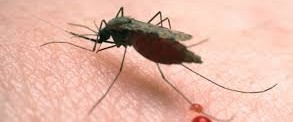Intervention studies, and especially randomised controlled trials, has been in the health tool box for many years. In medicine, we usually examine one intervention and look at one outcome. About 20 years ago, economists, furthermore, began to use these powerful methods.
Now, this year’s Nobel prize in economics gives an outstanding recognition to Abhijit Banerjee, Indian born professor at Massachusetts Institute of Technology, to Esther Duflo, a French born professor also at MIT, and to Michael Kremer, professor at Harvard University.
Their great achievements are that they introduced randomised controlled trials to obtaining reliable answers about the best ways to fight poverty. They divided the question of reducing poverty into smaller and more manageable, questions – for example, the most effective interventions for improving educational outcomes or child health. They show by doing so, questions are generally best answered via carefully designed experiments among the people who are, for the most part, affected.
In the research that we do, we frequently find that poverty is an underlying cause of a health problem, as can be seen by for example malnutrition. Now, the challenge is to identify smaller steps that could reduce poverty and subsequently malnutrition using their novel concept of breaking the problems into tinier and manageable proportions.
I hope that development agencies and governments, in collaboration with universities, will use such tools to improve their work.
